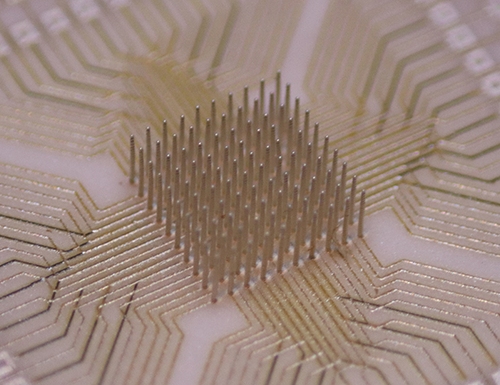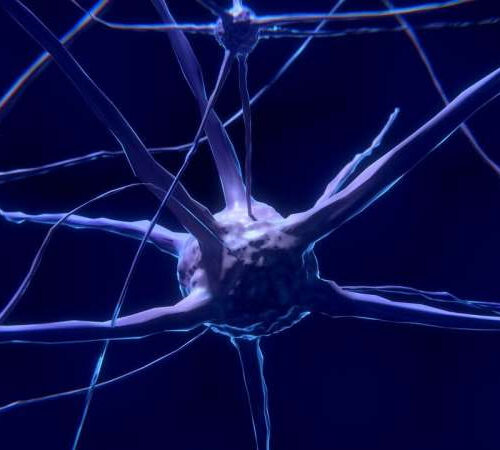Following the FDA approval for human clinical trials for brain tech startups, Anna Wexler of the Perelman School of Medicine discusses advances in brain-computer interfaces and looming ethical concerns. In a significant step forward in neurotechnology, companies that make implantable brain-computer interfacing (BCI) devices, such as Neuralink, have received approval from the U.S. Food and Drug Administration (FDA) to...
Tag: <span>BCI</span>
Nanoprinted Microelectrode Array for Brain Computer Interfaces
OCTOBER 13TH, 2022 CONN HASTINGS NEUROLOGY, NEUROSURGERY Researchers at Carnegie Mellon University have used a nanoscale 3D printing technique that allows them to customize the microelectrode arrays used for brain computer interfaces. The approach is called Aerosol Jet 3D printing, and the researchers used it to create three-dimensional microelectrode arrays that can be customized for particular...
Deepfaking the mind’ could improve brain-computer interfaces for people with disabilities
by Caitlin Dawson, University of Southern California Credit: CC0 Public Domain Researchers at the USC Viterbi School of Engineering are using generative adversarial networks (GANs)—technology best known for creating deepfake videos and photorealistic human faces—to improve brain-computer interfaces for people with disabilities. In a paper published in Nature Biomedical Engineering, the team successfully taught an AI to...
Researchers restore injured man’s sense of touch using brain
While we might often take our sense of touch for granted, for researchers developing technologies to restore limb function in people paralyzed due to spinal cord injury or disease, re-establishing the sense of touch is an essential part of the process. And on April 23 in the journal Cell, a team of researchers at Battelle...
Imagined movements can alter our brains
Brain-computer interfaces (BCI) work on the principle that measurable changes in electrical brain activity occur just by thinking about performing a task. Signals can be read, evaluated, and then converted into control signals via a machine learning system, which can then be used to operate a computer or a prosthesis. In a recently published studyresearchers...


